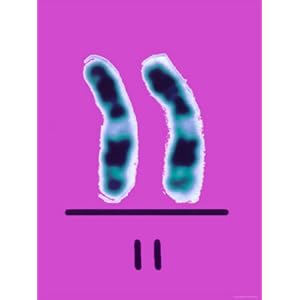Do 8th blog in GENOME
In Chapter 11, "Personality" Matt Ridley describes a gene called D4DR on the short arm of chromosome 11 that produces the protein, dopamine. Dopamine has a variety of jobs in the body, including, blood flow through the brain and shortage of this protein can cause an indecisive personality. (ex. Parkinson's disease). The quote that I find very intriguing is " Dopamine is perhaps the brains's motivation chemical. Too little and the person lacks motivation. Too much and the person frequently seeks new adventures." Therefore it can be concluded that chromosome 11 is responsible for the genes of personality in a human. In order to find differences between the long and the short gene of D4DR, Dean Hamer set out and tested numerous groups of people. His studies concluded that "People with long D4DR genes have low responsiveness to dopamine." So in order for them to have the same dopamine "buzz" as short-gened people automatically have, they must pretend/seek to live in a world full of adventures. The thing that bothers me is that now in the 21st century, parents can choose different genes their child can have, including the personality gene. I agree with Matt Ridley on "Parenting can alter an innate personality." A parent's job is to teach their child whats right from wrong and as they continue growing they will develop similar personalities as the parent. For example, Therapists treat their client's problems such as "shyness" by telling them that they are naturally shy and surprisingly began to increase interpersonal characteristics. " Clients felt relieved to be told that their personality was a innate part of them and not just a bad habit they had got into." Everyone is different. Personality and behavior can both be socially and biologically determined. But in the end, "genes are programmed not only to make social behavior, but to respond to it as well."




